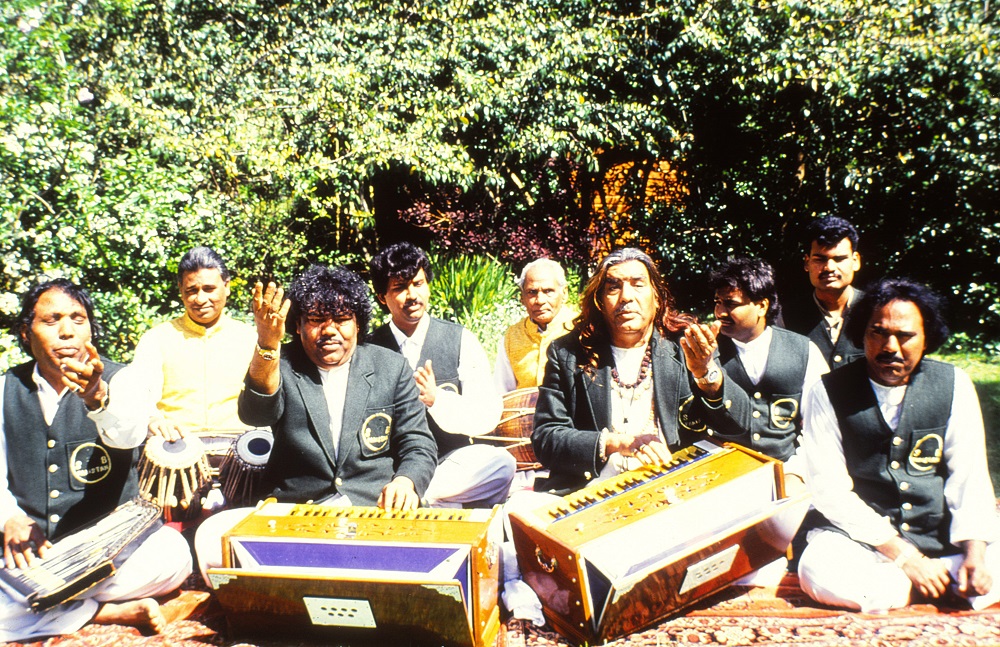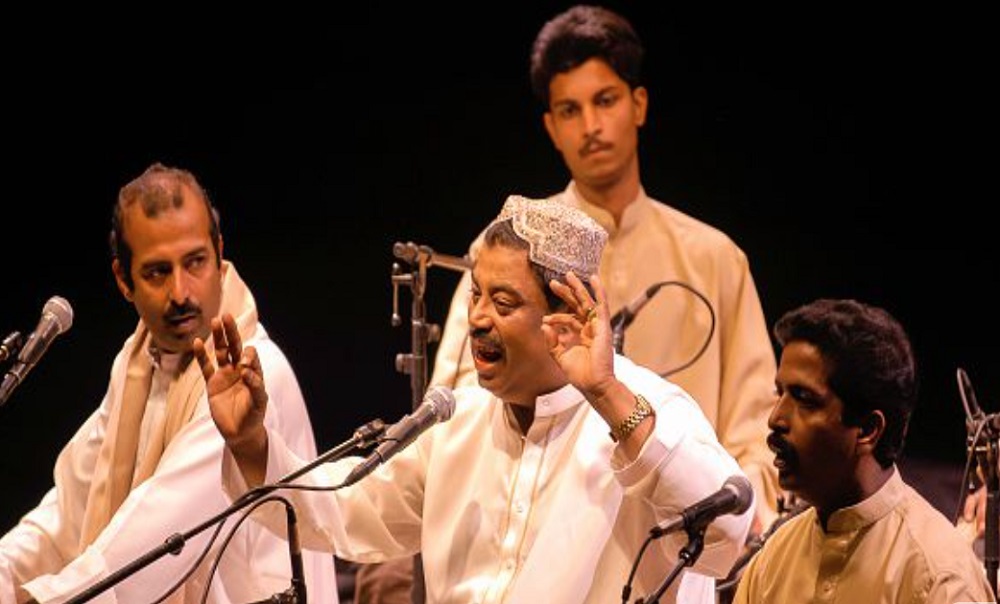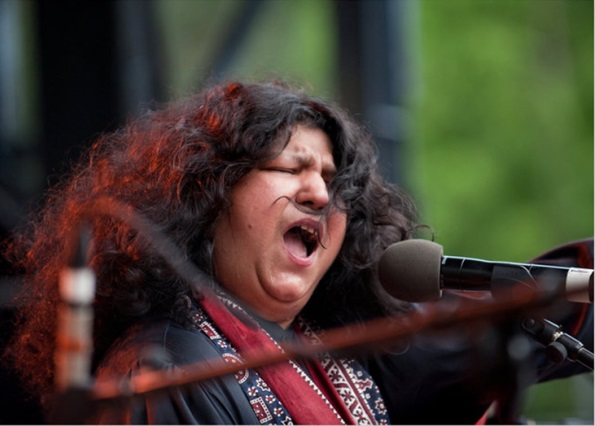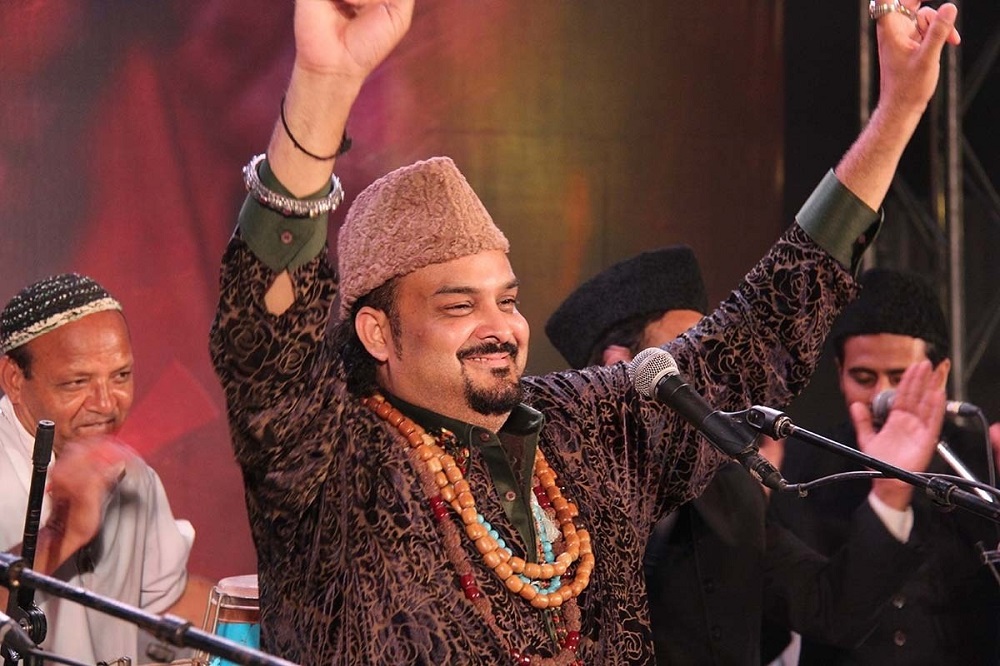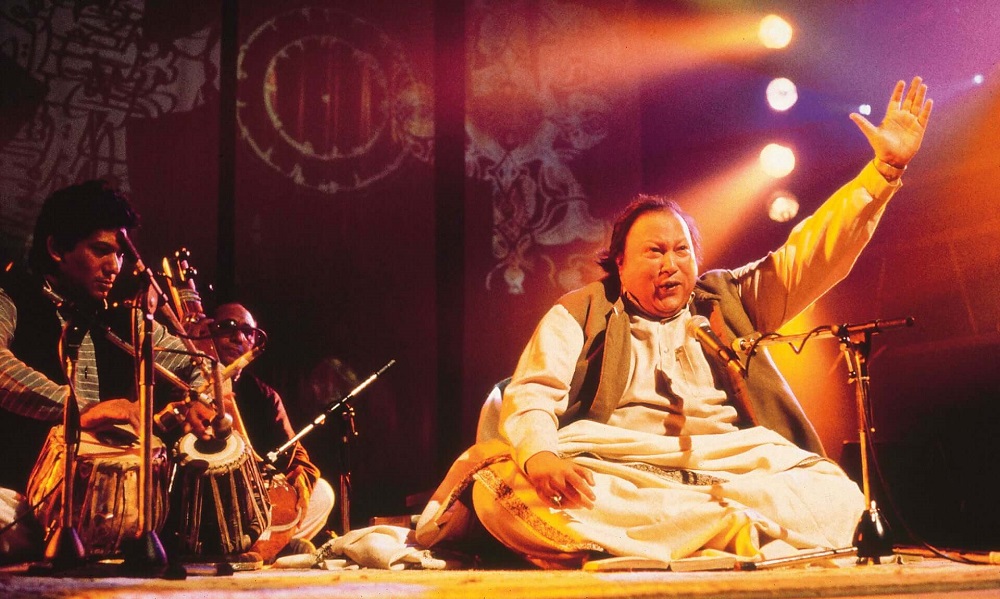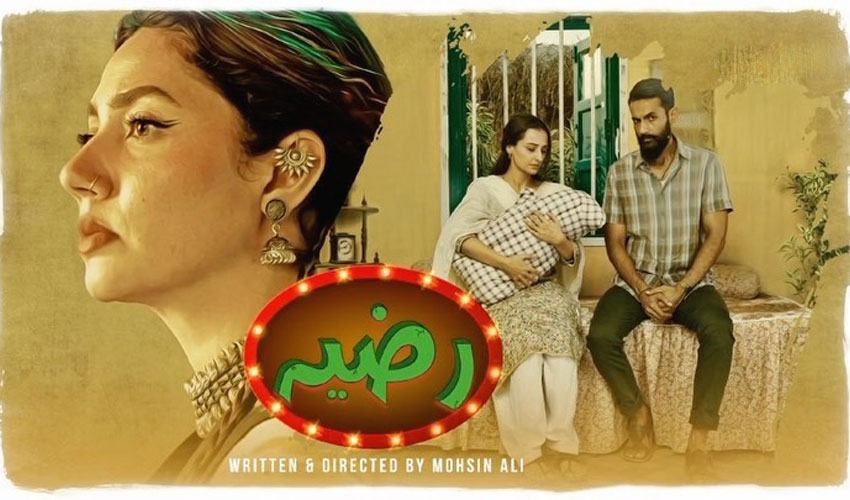The art form of Qawwali has made a comeback in recent years in Pakistan. While it had been long replaced by Disc Jockeys (DJs) at weddings and events, people are now booking Qawwali groups more and more at private weddings, parties and events. The appeal of the Qawwali is quite strong in the South Asian culture and draws people to it time and time again. It is an art form that transcends current trends in music, as its core is still tied to the spirit of the Sufi soul. But where does Qawwali come from, and what exactly is it?
Dating as far back as the late 13th century, Amir Khusrow, Delhi’s Sufi saint belonging to the Chisti order of Sufis merged the Persian, Arabic, Turkish and Indian traditions to create Qawwali as we know it today. Qawwali is at its core a celebration of love. There are two types of love as expressed in poetry; Ishq-e-majazi (the love for others) and Ishq-e-haqiqi (the love for the Creator), but Qawwali is not limited to either form of love and can be a celebration of many kinds of love. The formal name for a Qawwali session is Mehfil-e-Sama, where samaa signifies a devotional practice that involves singing, playing musical instruments, dancing, praying, recitation of poetry and many other rituals used to reach a higher spiritual state. Both the performers and the listeners are equally important participants in a mehfil-e-sama, as emotional and spiritual correspondence between both is necessary for a powerful performance.
A Qawwali group comprises of typically eight to nine men with a lead singer, side singers, harmoniums and percussion in the form of the tabla and dholak. The group is also comprised of four to five men that repeat key verses and aid percussion through hand-clapping. The Qawwali performance has a certain rhythm to it, with a momentum that begins gently and steadily increases in energy, allowing both the audience and the performers to reach an ecstatic devotional state or haal. There are several types of Qawwali songs that are performed during a mehfil, and these include hamd (praise of Allah), naat (praise of the Prophet Muhammad), ghazal (a secular love song), kafi (a poem in Punjabi, Seraiki, or Sindhi), marsiya (a lamentation over the death of Imam Hussain’s family), manqabat (a song in praise of Imam Ali or one of the Sufi saints) and munajaat (a Persian song of Maulana Rumi, in praise of Allah). Usually, the performance will start with a hamd, beginning in praise of God, and then introduce various types of songs that follow Indian classical raga scales.
What’s special about Qawwali is its linguistic mix of songs across Urdu, Punjabi, Persian, Saraiki, and other languages, encompassing poetry and verses that originate from various cultures, all coalescing under the banner of Sufi tradition. It is at its core, a blend of Indo-Pakistani Sufism with the early Sufi mysticism of the Middle East and Persia. Qawwali has historically played a big role in the spread of Islam in the Indian subcontinent, as the experience of Qawwali helps both the performer and the listener to come close to experiencing the ultimate union with the divine (tawheed) through the awareness and belief in the oneness of God (Wahdat-al-wajood). Allah Hoo (God, just He!) is one such Qawwali that has been performed by many different qawwals, including the late Sabri Brothers and Nusrat Fateh Ali Khan, and at its core, is derived from a Sufi chant (zikr) that praises Allah as the one and only creator.
The popularity of Qawwali hit a peak in the 1950s with Nusrat Fateh Ali Khan’s performances on foreign stages, and with the introduction of Qawwali music in films. Today, Qawwali has entered contemporary fusion music with various Coke Studio Pakistan productions. Sufi philosophy and Qawwali continue to be successful at attracting large audiences from not just the subcontinent, but from all over the world. The fact that people that do not even understand the idiomatic language used in Qawwalis, but can still relate to the fundamental concepts of love and freedom, and participate in ecstatic praise together in large numbers, is what continues to make Qawwali a unique living performative tradition.
Be it food or music, Pakistan has a lot to offer. We just need to protect and promote our culture so that the world could see the real image of Pakistan.


